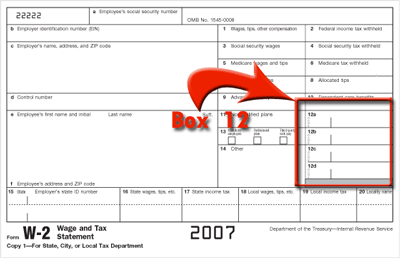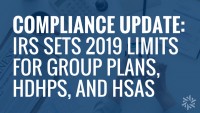Please note that this is not tax advice.
On Jan. 3, 2012, the IRS issued Notice 2012-09, which restates and amends last year’s Notice 2011-28 in regards to the W-2 health coverage reporting.
As most employers approach the first payroll subject to the new requirement, the guidance could not have come at a better time. The Affordable Care Act imposed a mandate requiring the cost of all applicable coverage be documented and recorded on a W-2 form in Box 12 as Code DD.

Recall that PPACA is supposed to add a Cadillac plan tax in 2018, a 40% tax that will apply to health plan value over a specific threshold. To implement this and give policymakers information about group health benefit expenditures, the IRS requires the aggregate cost of coverage (employee and employer portions) be reported on 2012 W-2s, to be furnished to employees on or before Jan. 2013.
Notice 2012-09 builds upon last year’s Notice 2011-28, a 31-question FAQ, and adds answers to “Additional Issues”.
Key highlights include:
- Small Employer Exception: Employers with less than 250 W-2s in 2011 still have an indefinite delay, as do Indian tribal governments. An employer that used a 3504 agent does not qualify for exemption if the employer would have exceeded 250 W-2s without the agent.
- Health FSAs: The IRS clarified in this notice that only the amount that exceeds an employee’s salary reduction must be reported. For example, an employer’s matching contribution must be reported.
- Employee Assistance Programs (EAPs), Wellness and On-site Medical Clinics: These items are NOT reportable if the employer does not charge a premium.
- End-of-year Issues: If a pay period crosses into the next year, the employer can report the coverage on the prior year’s W-2, the following year’s W-2 or allocate proportionally between both W-2s. The selected method must be applied consistently. If the benefit election changes received in the New Year take effect retroactively in the prior year, reporting for the prior year’s cost of coverage is disregarded.
- Hospital Indemnity/Fixed Indemnity Coverage: This coverage is reportable if the employer contributes to the cost of coverage on a tax-excludable basis or if the employee contributes to the cost of coverage on a pre-tax basis.
Notice 2012-09 is accessible here, as well as helpful FAQs provided by the IRS.
From Infinisource*
_____________________________________________________________________________________________
All content provided on this blog is for informational purposes only. The owner of this blog makes no representations as to the accuracy or completeness of any information on this site or found by following any link on this site. The owner of this blog does not endorse any of the information in this blog and it does not reflect the opinions of Austin Financial Group. The owner will not be liable for any errors or omissions in this information nor for the availability of this information. The owner will not be liable for any losses, injuries, or damages from the display or use of this information.


